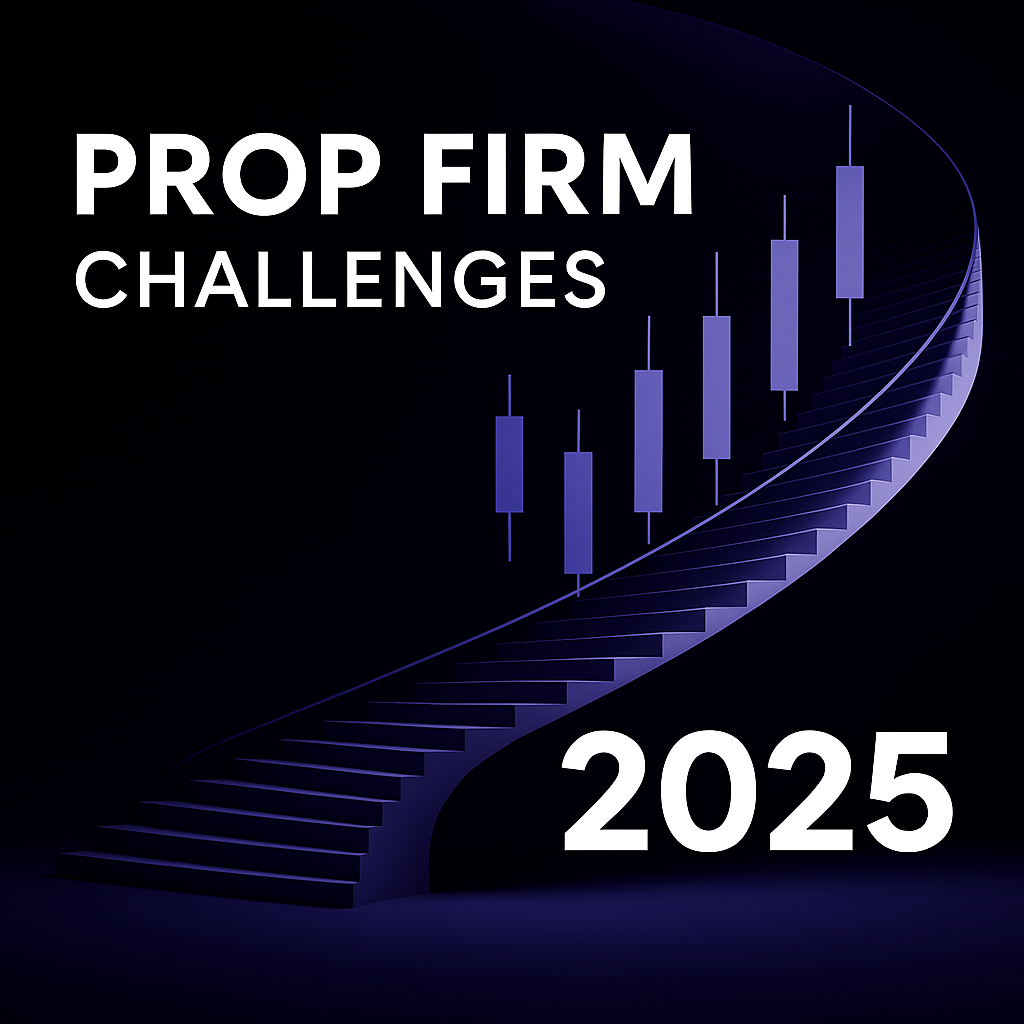Navigating Prop Firm Challenges 2025: What Traders Need to Know
The landscape of proprietary trading is evolving fast, and prop firm challenges 2025 are shaping up to be more dynamic and demanding than ever before. For traders seeking to grow and stay funded, it’s critical to stay ahead of upcoming hurdles. Whether you’re just entering the industry or already managing a funded account, understanding these challenges can position you for long-term success.
In this article, we’ll highlight the most impactful developments expected in 2025. From regulatory updates to technological disruptions, these insights are designed to help traders adjust their strategies proactively and maintain an edge in the market.
Stricter Evaluation Metrics and Longer Track Records
One major change on the horizon is the trend toward stricter evaluation phases. Prop firms are likely to demand longer trading history and consistency, focusing more on how traders handle drawdowns rather than just profit generation. In 2025, it won’t be enough to pass a challenge quickly—you’ll need to show that you can manage risk across various conditions.
Moreover, expect increased scrutiny around trade behavior, including holding times, news trading, and risk per position. Firms are becoming more selective, favoring traders with discipline over aggression.
More Complex Market Conditions
Global financial markets are heading into uncertain territory, with rising interest rates, shifting geopolitical dynamics, and evolving monetary policies. These conditions create environments where volatility spikes without warning.
This poses one of the biggest prop firm challenges 2025 will bring: adapting to market complexity. Traders must be prepared for more sudden trend reversals, tighter spreads, and unexpected liquidity gaps. To succeed, having a robust trading plan with flexible risk controls is no longer optional—it’s essential.
Rising Importance of Psychological Resilience
While technical skills and strategy are crucial, 2025 will also spotlight mental toughness as a defining trait of successful prop traders. With more intensive evaluations and increased trading pressure, emotional discipline becomes vital.
Traders who maintain consistency under stress will outlast others. This includes handling extended drawdowns, coping with high volatility, and managing the emotional rollercoaster of funded trading. Prop firms are paying more attention to how traders behave after losses, not just how much they win.
Evolving Rules and Restrictions
Another critical element of prop firm challenges 2025 is the shift in operational rules. Firms are adjusting their models to protect capital and meet compliance standards. This means stricter rules on trading news events, overnight holds, and lot size limitations.
Traders will need to be more careful about execution and ensure they fully understand the rules of engagement. Ignorance of restrictions could lead to disqualification, even with strong performance. Clear communication, reading all program guidelines, and staying compliant are must-dos.
Technology: A Double-Edged Sword
Technology continues to transform trading. On one hand, advanced platforms offer faster executions, smart order routing, and better analytics. On the other, firms are also using more AI-driven oversight tools to track behavior in real-time.
This presents both opportunities and challenges. For example, algorithmic oversight may flag strategies that deviate from expected patterns, even if they’re profitable. Traders will need to ensure their systems and styles align with firm expectations.
At the same time, learning to use advanced charting tools, APIs, and performance dashboards can help traders sharpen their edge. Those who embrace the tech shift will likely outperform those who resist it.
The Rise of Cross-Asset Proficiency
In 2025, traders will be expected to demonstrate versatility. It’s no longer enough to master one market. Firms are looking for those who can trade multiple asset classes—whether it’s forex, indices, commodities, or futures.
This shift allows firms to diversify risk and tap into broader market cycles. As a result, traders who only focus on one instrument may struggle to remain competitive. Consider expanding your playbook and getting comfortable with instruments that offer liquidity and trending behavior.
Building Stronger Daily Routines and Journals
With tighter competition, the smallest habits can make a big difference. Prop firms increasingly value traders who operate with structure and accountability. Keeping a trading journal, reviewing performance metrics, and sticking to daily routines will be more important than ever.
Not only do these practices improve your consistency, but they also reflect positively during evaluations or audits. Traders who treat trading like a business—organized, repeatable, and documented—are more likely to stay funded.
Continuous Learning as a Requirement
Finally, one of the more subtle but impactful prop firm challenges 2025 will be keeping up with market knowledge. The learning curve never stops. Whether it’s a new economic policy, a shift in central bank guidance, or updates to platform functionality, traders need to stay informed.
Fortunately, many educational resources are available. From webinars to trading communities, staying connected and investing in your education will help you maintain your competitive edge.
Final Thoughts: Facing the Future with Confidence
Prop trading is not static. The bar is rising, and those who want to succeed in 2025 must evolve along with the industry. While prop firm challenges 2025 will test your skills, discipline, and adaptability, they also offer a chance to separate yourself from the crowd.
By focusing on risk management, compliance, continuous improvement, and mental resilience, traders can build a sustainable career. And with firms like Larsa Capital offering supportive funding models and structured opportunities, those ready to grow will find the right path forward.

